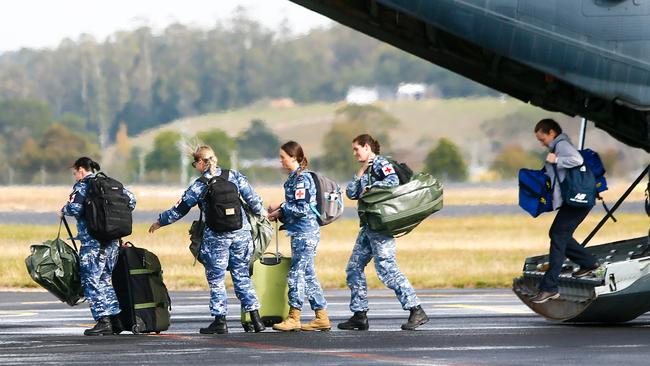We’re going to need a defence force with real bite

Beijing wants to dominate our region and demands compliance from us. As Scott Morrison said of the massive series of cyber attacks recently: “This is the new world we live in.”
I have been saying for years that we should welcome the rise of China, but only from a position of strength. The national security strength that we should have encompasses economic, financial, diplomatic, governance, social and military factors. If we were appropriately strong in all these areas of national power, we could call ourselves self-reliant.
Self-reliance means that regardless of what the US or China did, we would have confidence that we could adjust in the time required to defend ourselves and so, with a bit of luck, deter conflict impacting directly on us. At present we are severely deficient.
Our economic power is impressive regardless of COVID’s impact. As the 13th largest GDP, pre-COVID, in the world — larger than Russia’s — our defence potential is immense. But COVID has shown us how unbalanced that impressive record is.
How can a country that could not even produce its own personal protective equipment in a pandemic ever produce what is required to increase our military and prepare our population so as to deter a conflict by being able to win?
Our ability to produce several hundred billion dollars to manage COVID was impressive regardless of how long it will take us to repay it. We may have the borrowing power to purchase the wherewithal to deter conflict but, as a conflict looms, those who have what we need will be very reluctant initially to sell until they see to their own needs.
Our diplomatic clout is one of our greatest strengths. Although US military power has weakened, it is still considerable. The role we assume the US may play in a regional conflict is critical. Because of our alliances we are unlikely ever to face the entire might of an aggressor alone, but even in a direct clash between China and the US we may suffer serious collateral damage, certainly economically, possibly in many other areas.
We gain strength from our alliance with the US and other Western powers, but we also suffer vulnerabilities that may then include us in a military conflict. Certainly, an aggressive power such as China must prevent the US from using Australia as a base, and that means direct action at least against our ports and our sea lanes. Australia’s ports are the single point of economic and military failure for this country and are deeply vulnerable, with the navy’s limited ability to secure ports from sea mine warfare. Militarily, with a nation of 25 million educated and aware people, with economic and financial power, and with good governance, we have extraordinary military potential, immense even.
With the rise not only of China, but also of Russia, Iran (sitting on the source of all that liquid fuel) and nuclear-armed North Korea, plus the ever-present Islamic extremists, predicting the type of war we will need to fight is difficult but not impossible.
The Australian Defence Force is the best that I have seen it for 50 years, but it is only good for the type of conflict that we have fought for decades, sending small forces overseas to fight beside our allies, with a few areas of higher warfare handy if we ever had to expand and fight a war to defend the nation. The ADF of 2020 is not designed to defend Australia, not even to be effective in scenarios less than the direct defence of this country. It is now brilliant for what we have been doing for 75 years, but it has neither the mass nor the lethality to deter conflict by being able to win in likely scenarios.
Nor do we as a nation have what a military needs to expand, or to fight a modern war, such as boundless cheap energy, sufficient liquid fuel and a broad manufacturing base.
Australia has the potential to defend itself but it will take years to develop it. There is no guarantee that Australia will exist in our second 100 years as a free and sovereign nation unless we radically change the way we look at the self-reliance we need to maintain that sovereignty.
The first step is to take a strategic view, to develop not just a disembodied defence strategy, or cyber strategy, or liquid fuels strategy, or a policy on manufacturing. They are second order issues.
To prepare Australia for what is coming, with the hope of deterring direct conflict, we in the government must start with a national security strategy. Only then can we direct economic, financial, social and military preparations for conflict, and this requires resolve in government.
If this is “part of the new world we live in”, then only government can determine strategy. Without strategy, as a long dead Chinese general reminds us, anything else we might want to do is merely “noise before defeat”.
Jim Molan is a senator for NSW.



Many commentators see conflict in our region as not only possible but quite likely. This has been caused predominantly by one nation: China. But we must share some of the blame because we have ignored our century-long history of national unpreparedness, and have relied blindly on an assumed level of US power which, since the end of the Cold War, exists at a much lower and dangerous level, and looks less likely to deter regional conflict.